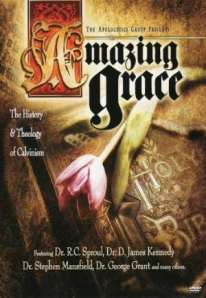How do you know that you are saved? How do I know that I am saved? Is it because once in my life I prayed a prayer inviting Jesus into my heart. No. (That can be a stumbling block, and a false assurance of salvation.)
Is it because I live right and believe that there is a God? No.
It is because that I have believed that Jesus Christ is my Savior, he is the chosen One, he is the one who took my sins on the cross FOR me. Jesus is not a part of my life. He is my life. My old life is gone and I have a new life in Christ.
But how can we continually know that we are saved and have proof of assurance? Continue reading
 and TULIP. I would urge you to invest in this DVD or borrow it from someone who may have it.
and TULIP. I would urge you to invest in this DVD or borrow it from someone who may have it.